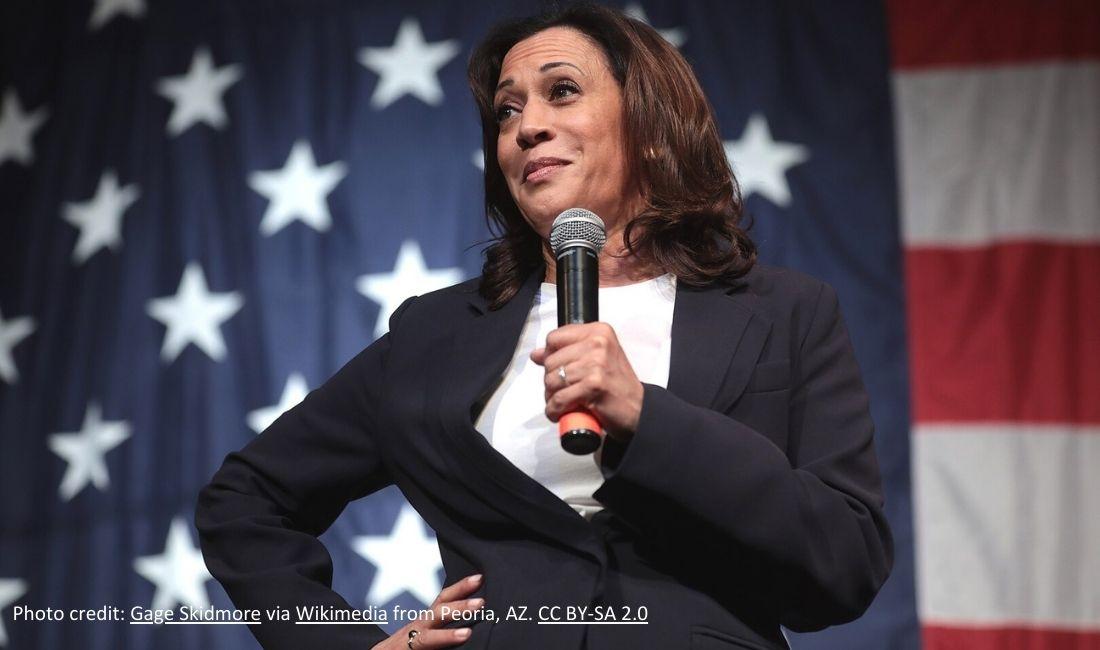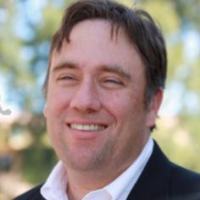How Kamala Harris learned to take crap.
This column was originally produced by Zócalo Public Square. Photo credit: CC BY-SA 2.0
Don’t worry, world.
We got this.
By “we,” I mean California.
By “this,” I mean this presidential election.
And by “got,” I mean that we are sending you the best possible candidate to weather whatever the next three-plus months hold.
Now let’s be honest about Kamala Harris. We’re not giving you our most charismatic public speaker. Harris’ sentences are sometimes as awkward as Joe Biden’s. She has a bad habit of fusing her talking points into word salads.
We’re not giving you our most disciplined politician. She’ll crack a joke when she shouldn’t or make a mistake in a meeting or at the border that requires political clean-up.
What we are giving you is our most enduring political escape artist. We are giving you someone who can emerge improbably triumphant from losing situations.
But, most of all, we are giving you someone who will take more crap than anyone possibly could, and never quit.
The best way to understand Kamala Harris, if you care to understand the person who (non-Trumpian God willing) will be our next president, is through a classic movie quote, courtesy of a prominent San Francisco political consultant named Eric Jaye.
The movie is The Shawshank Redemption, released in 1994 and based on a Stephen King novella that owes a debt to the French writer Alexandre Dumas’ The Count of Monte Cristo, a classic story about a prison break and unexpected revenge.
Years ago, Jaye suggested Kamala Harris was the California equivalent of the movie’s main character, Andy Dufresne, a falsely convicted banker who escapes Shawshank Prison through a 500-yard-long sewage pipe.
“Andy Dufresne,” Jaye said, quoting Morgan Freeman’s character in the movie, “who crawled through a river of shit and came out clean on the other side.”
Because Americans don’t know Harris this way, they are underestimating her. Just like they underestimate California.
Contrary to the stereotypes, 21st-century California is not soft or easy. It’s a crowded, crazily competitive place where everything is a struggle. It’s next to impossible to get into the school you want, or get a job that pays enough, or find an affordable place to live.
The real California made Harris tough. It helps that she grew up in a tough place and time—the madness of the late 1960s and early 1970s in Berkeley and in Oakland, which might be California’s toughest city. Her parents were scholars—not the toughest of professions—but they were immigrants, from India and Jamaica, who experienced tough adjustments to American life. And after their divorce, when Harris was still very young, she and her sister were raised almost entirely by their mother.
As a mixed-race kid, Harris struggled to fit in, at a newly integrated elementary school, and at both a Hindu temple and the 23rd Avenue Church of God. In her early teens, she was relocated to a foreign city, Montreal. She attended law school not in the leafy Ivy League like that supposed working-class hero JD Vance but at the UC Hastings, in the middle of San Francisco’s toughest neighborhood, the Tenderloin. And she worked as a prosecutor in Alameda County and then San Francisco, on the sorts of cases—sex crimes and child abuse—that can harden people.
She launched her political career in the hyper-competitive political culture of San Francisco, which forged many of our state’s toughest pols—Willie Brown, Nancy Pelosi, Phil and John Burton. Her first election, for San Francisco district attorney, was one she should have lost, because it was the trickiest challenge in politics—beating an incumbent who was also her boss. Somehow, she escaped with victory in a three-way race when she’d started in third.
Then Harris, still little known, ran statewide, for California attorney general—against a popular Los Angeles Republican named Steve Cooley who had the state’s law enforcement community behind him. On election night, she appeared to have lost. But when all the votes were counted three weeks later, she had squeaked through.
When a U.S. Senate seat opened in 2016, Harris was hardly the most popular Democrat in the state. But she jumped into the race early and managed to scare off other contenders and win the seat over another Democrat.
Harris’ 2020 presidential campaign was a disaster. She started strong in debates but didn’t make it to the Iowa caucuses, alienating both progressives and moderates. But even after that embarrassing campaign, she found a way through, convincing Biden to make her vice president.
Media and public reviews of her vice presidency have been dicey. She had too much staff turnover. Biden gave her impossible issues to manage, mainly immigration. For the first three years, her approval ratings and polling were lower than the president’s. She was cited as the reason he couldn’t retire after one term. But all those things turned. Her performance improved. And now Biden has bowed out and endorsed her for president because she looks like the stronger candidate.
She doesn’t have the nomination yet of course. She may have to go through a contested convention. And if she earns the nod, she’ll face a former president who is ready to attack.
Democrats are worried. Because Donald Trump is a constant font of lies and accusations. His strategy, as the now-imprisoned Trump advisor Steve Bannon has famously said, “is to flood the zone with shit.”
But this time, his opponent is Kamala Harris. She survived all the BS of San Francisco and California and national politics. She’s heard every disgusting sexist insult. She sloughed off slurs against two different races.
She’s about to be submerged in it all again. Because American politics is a river of you-know-what.
Which is why this is her moment.
Who is better equipped to navigate us through all the crap, and to the cleaner other side, than Kamala Devi Harris?




